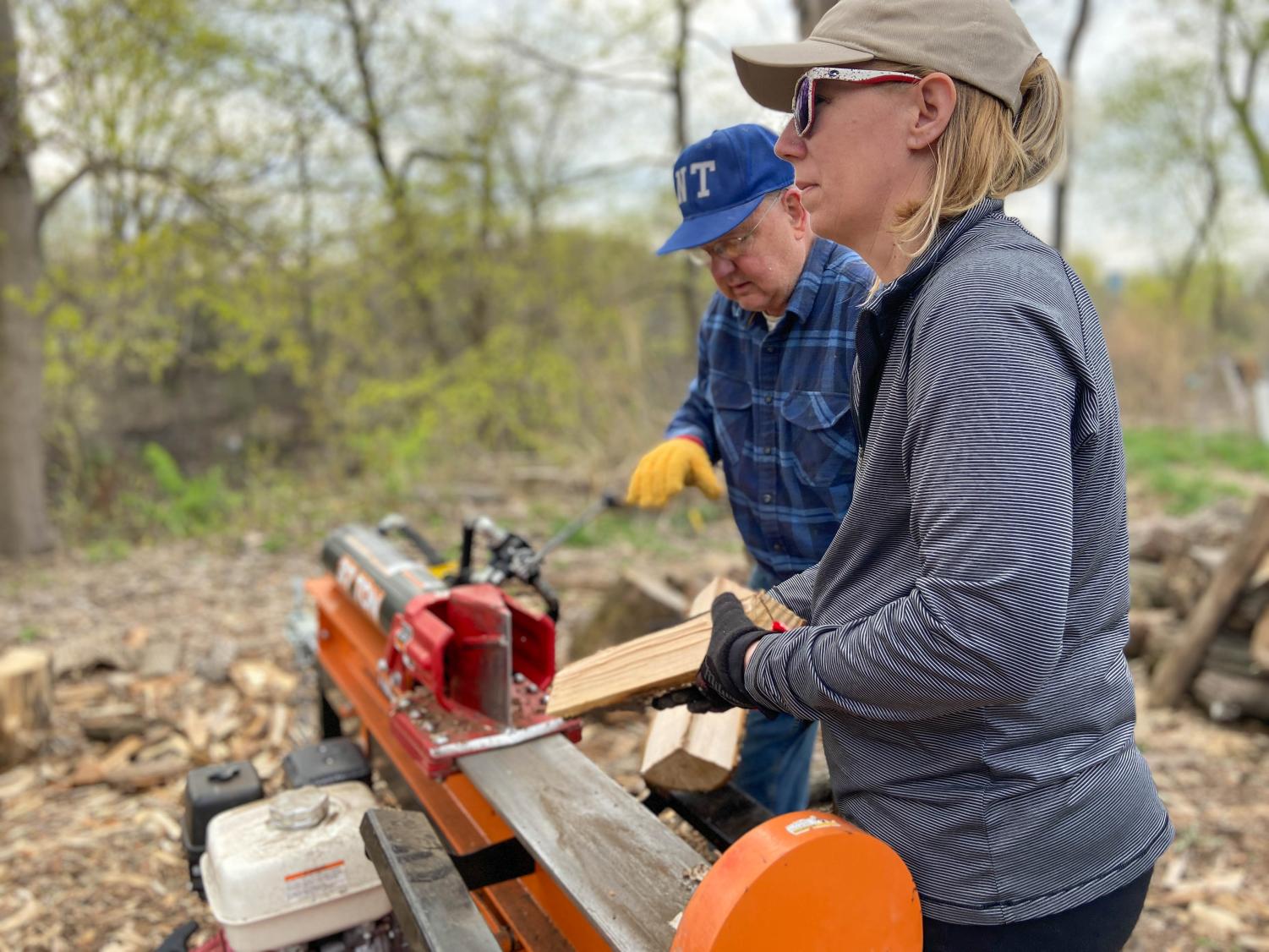
Chainsaws, those quintessential tools of lumberjacks and DIY enthusiasts, are often associated with power, efficiency, and the ability to tame nature’s unruly greenery. However, beneath this utilitarian image lies a darker undercurrent of fear. For many individuals, the mere sight or sound of a chainsaw can trigger a surge of anxiety, dread, and even paralyzing terror. This pervasive fear, often categorized as chainsaw phobia or motoserrophobia, is rooted in a complex interplay of physical dangers, cultural representations, and personal experiences.
The Looming Threat of Physical Harm
At its core, chainsaw fear is deeply entwined with the very real threat of physical harm that these machines pose. The razor-sharp, rotating blades, capable of inflicting gruesome injuries with the slightest misstep, are a constant reminder of the chainsaw’s destructive potential. The deafening roar of the engine adds to the sense of menace, further amplifying the fear response. The unpredictable nature of chainsaw kickback, a sudden and violent backward motion of the machine, adds another layer of danger, reinforcing the perception of chainsaws as unpredictable and potentially deadly weapons.
Chainsaws in the Realm of Fear: Cultural Representations
The fear of chainsaws extends beyond the physical realm, deeply embedded in the cultural landscape. Horror movies and literature have played a significant role in shaping our perception of these machines as instruments of terror. Iconic characters like Jason Voorhees from the Friday the 13th franchise and Leatherface from The Texas Chain Saw Massacre have cemented the association of chainsaws with violence, bloodshed, and relentless pursuit. These cinematic portrayals have seeped into popular culture, reinforcing the notion of chainsaws as symbols of impending doom and inflicting psychological damage on unsuspecting viewers.
The Personal Touch: Individual Encounters and Fear Transmission
While cultural representations undoubtedly amplify chainsaw fear, personal experiences play an equally significant role. Negative encounters with chainsaws, whether witnessing accidents or experiencing them firsthand, can leave an indelible mark on one’s psyche. The graphic images of injuries sustained from chainsaw misuse can fuel fear and anxiety, making it difficult to dissociate these machines from potential harm. Moreover, fear can be transmitted through family and cultural narratives, with stories of chainsaw-related mishaps passed down through generations, perpetuating the perception of these tools as dangerous and to be avoided.
The Psychological Impact: Anxiety, Avoidance, and Generalized Fear
The fear of chainsaws can manifest in a range of psychological symptoms, including anxiety, panic attacks, and avoidance behaviors. Individuals with chainsaw phobia may experience intense anxiety and fear when confronted with these machines, even in controlled environments. Panic attacks, characterized by sudden episodes of intense fear and physical distress, can become debilitating, restricting daily activities and causing significant distress. Avoidance behaviors, such as refusing to operate chainsaws or even be in their vicinity, are a common coping mechanism, but they can significantly limit one’s ability to engage in everyday tasks and hobbies.
While chainsaw fear can be a debilitating condition, there are effective strategies for managing and overcoming it. Gradual exposure therapy, under the guidance of a qualified therapist, can help individuals desensitize themselves to chainsaws, starting with pictures and videos and gradually progressing to real chainsaws in a controlled setting. Cognitive-behavioral therapy (CBT) can be particularly helpful in addressing the irrational thoughts and beliefs that underlie chainsaw phobia. In severe cases, medication may be prescribe to manage anxiety symptoms and facilitate the therapeutic process.
Conclusion: Acknowledging Fear, Embracing Safety
Chainsaw fear, with its roots in physical danger, cultural representations, and personal experiences, is a complex and often debilitating condition. However, it is important to acknowledge that fear, while often irrational, serves an evolutionary purpose, alerting us to potential threats and protecting us from harm. By understanding the underlying mechanisms of chainsaw fear and employing effective coping strategies, individuals can regain control over their lives and safely navigate situations involving these powerful machines. Remember, safety should always be paramount when operating chainsaws, and seeking professional help when fear becomes overwhelming is a sign of strength, not weakness.
Beyond the Blade: Dispelling Myths and Embracing Safety
It’s important to differentiate between a healthy respect for the power of a chainsaw and a debilitating fear. Chainsaws are inherently dangerous tools, and taking safety precautions seriously is crucial. Always wear appropriate protective gear, including eye protection, gloves with good grip, ear protection, and sturdy footwear. Familiarize yourself with proper operating techniques and maintenance procedures before wielding a chainsaw.
However, media portrayals often exaggerate the dangers, fueling irrational fear. Chainsaws aren’t inherently malicious; they are tools, and like any tool, they can be used safely with proper training and caution.
The Power of Knowledge: Dismantling Myths
Understanding chainsaw mechanics can alleviate some fear. Kickback, for instance, is a preventable phenomenon. Maintaining a firm grip on the chainsaw and avoiding contact with the tip of the blade significantly reduces the risk. Similarly, a dull blade increases the likelihood of accidents. Keeping the blade sharp ensures cleaner cuts and reduces the effort required, minimizing the risk of operator fatigue and loss of control.
Breaking the Cycle: Embracing Empowerment
For those struggling with chainsaw phobia, conquering fear can be empowering. Joining a chainsaw safety course can provide valuable knowledge and hands-on experience in a controlled environment. Witnessing safe and responsible chainsaw operation can be a powerful tool for desensitization. Remember, many people use chainsaws safely and effectively for everyday tasks.
Chainsaws: Tools, Not Terrors
Ultimately, chainsaws are powerful tools with the potential to be dangerous when misused. Yet, by acknowledging the physical dangers, understanding the cultural influences on fear, and addressing personal experiences, we can navigate chainsaw phobia. With proper training, safety precautions, and a healthy respect for their power, chainsaws can become valuable tools for tackling outdoor tasks, not objects of paralyzing fear.
In conclusion, the fear of chainsaws is a complex issue, but one that can be address. By acknowledging the multifaceted nature of this fear and utilizing available resources, we can move beyond the grip of terror and embrace a more empowered and informed relationship with these powerful tools. Remember, knowledge is power, and when it comes to chainsaws, that knowledge translates to safety, confidence, and the ability to harness their potential for good.